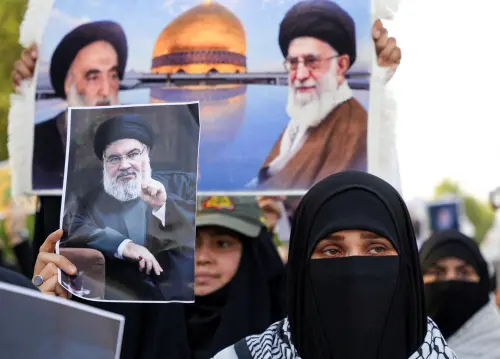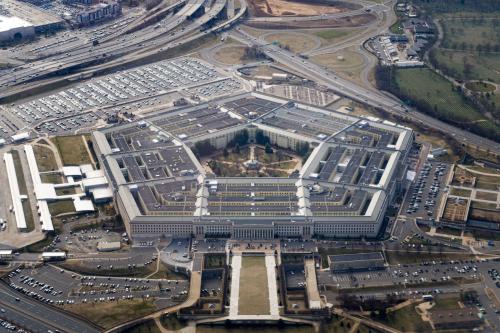Mumbai will stand as the most consequential terrorist attack since 9/11. Its eventual strategic implications could be devastating, because it could further destabilize Pakistan and accelerate that failing state’s collapse into a failed one.
The origins of the attack remain unclear: We know little about the gunmen. Of those identified, all but one are dead. It is difficult to imagine that as few as 10 terrorists—the number cited in most reports—carried out this attack or that they did so without extensive local logistical support and sophisticated planning. Most attention is focused on the outlawed but tolerated Pakistan-based group Lashkar-e-Tayyba, a group that Osama Bin Laden reportedly helped establish in the late 1980s to fight against the Indian presence in Kashmir and that was nurtured for most of its existence by the ISI, Pakistan’s military intelligence agency. The group has been linked to the 2001 attack on the Indian parliament, which nearly sparked a war with Pakistan, and the 2005 London Tube bombings. Although the Pakistani government under both Gen. Pervez Musharraf and President Asif Ali Zardari have condemned the group, the possibility that current or former ISI personnel might be involved cannot be ruled out.
What is clear is that whoever planned the attack had an incisive understanding of how to destroy the limited progress that had been made to reduce Pakistani-Indian tensions and to undermine the new Pakistani civilian government’s efforts to defeat the Islamist radicalism that is consuming the state. Shortly before the U.S. presidential election, I argued that there was a big opening for jihadists to make an enormous impact with an action that could be traced to Pakistan, thus inviting retaliation against that country. Political backlash against such retaliation might render the new civilian government incapable of cooperating with the United States against terror and would accelerate the fraying of Pakistan, where extremists often operate in the open.
The planners of the Mumbai slaughter obviously saw this opportunity. The bloodshed in India’s financial hub was calculated to outrage not just Indians, who constituted the large majority of those murdered, but also, it appears, the key partners in what the jihadists call the Crusader Alliance To Destroy Islam—Americans, Britons, and Israelis. It is plausible that the two luxury hotels were targeted in order to ensure American and British victims, and anecdotal information suggests that terrorists tried to identify hotel guests of these nationalities. The fact that the local Chabad House was hit indicates that Jews and Israel were also targets. In short, this was an attack that aimed at making a mark in the global jihad, not just another battle in the historic back-and-forth between the subcontinental neighbors.
The wholesale killing of Indians in one of their great cities serves key goals for the terrorists. Even if the Indians conclude that the Pakistani government did not sanction the attack, Indian anger at Islamabad’s inability to control its territory and keep it from being a base for terrorists will raise tensions, rendering it impossible to make progress in the talks on Kashmir, the disputed region that has been at the heart of the Indo-Pakistani conflict for 60 years. Indians and Pakistanis have been through plenty of close calls, including in 1999, when Pakistan’s failed Kargil incursion brought them close to a nuclear exchange, and in 2001, after the attack on the Indian parliament. But even if they don’t go to the brink now—and the possibility of miscalculation is always present in South Asia—the cost in lost progress at improving relations will be high.
To the radicals of Lashkar-e-Tayyba, as well as to al-Qaida, Kashmir is a core grievance on which there can be no compromise. Any effort that prevents progress on the issue and delays normalization between Pakistan and India is worth the energy. From the terrorists’ perspective, there are other benefits, too: Indians now will become more suspicious of their 130-million-strong Muslim minority, tension that may win the terrorists adherents among this huge—and increasingly restive—community. The unraveling of social peace in India is among the worst nightmares that country could face.
There are too many dead in Mumbai to be glib about anyone else being a “real victim” of this terror. But it is nonetheless true that Pakistan was also a target of the attackers. This episode, much like the killing of Benazir Bhutto, was meant to eviscerate the movement to stabilize this failing state and put it on a course toward moderation.
Indeed, part of the motivation may have been to retaliate against the Zardari government for its efforts to rein in ISI. The relatively new chief of the army staff, Gen. Ashfaq Parvez Kayani—himself a former head of ISI—who had been close to Benazir Bhutto, recently replaced the head of ISI, and Zardari had ordered a part of the agency that dealt with domestic intelligence closed. (None of this rules out the possibility that elements within ISI, operating on their own, had a hand in Mumbai. It has been a symptom of Pakistan’s dysfunction that the government has often had little control over ISI—hence the embarrassment that came earlier this year when the U.S. intelligence community confirmed Indian accusations that the agency was behind the bombing of the Indian Embassy in Kabul.)
The Pakistanis will pay a price, too, if the resulting tensions between Islamabad and New Delhi lead to military redeployments along the countries’ long border, as Kayani has warned. That will draw troops away from the counterinsurgency efforts to roll back the Pakistani Taliban and other radical groups in the Federally Administered Tribal Areas and the North West Frontier Province—a setback for the United States, which is urging Pakistan to get more serious about its rebels, and for Afghanistan, which must deal with cross-border infiltration. It will also reconfirm the Pakistani army’s instinctive belief that it exists to confront India, not strengthen a state in disarray. The less pressure on al-Qaida and other extremists in the FATA, the more danger the United States will face.
All this will make it harder for Pakistan to pull itself back from state failure, which is where it is headed despite the efforts of the new government. Under pressure from the Indian government—which is taking heat for its initially ineffective response to the attack—and the United States, Pakistan will look more and more like that other great disappointment at counterterrorism, the Palestinian Authority. Too weak to meet the demands of its neighbors and friends, it will continue to lose credibility and find itself in an ever-deeper crisis. Demilitarizing groups like Lashkar-e-Tayyba—which has armed thousands over the years and has hundreds of thousands of supporters—has long been in the “too-hard-to-do category” for Islamabad. That hasn’t changed, except now the United States and India will, understandably, demand it more loudly.



Commentary
Op-edThe Mumbai Terrorists’ Other Target
December 1, 2008